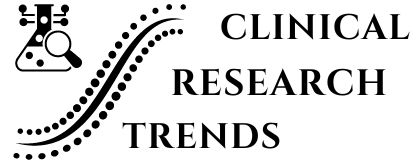The Role of Pharmacogenomics in Clinical Research
Pharmacogenomics, a discipline combining pharmacology and genomics, represents a frontier in modern medicine. It focuses on how an individual's genetic makeup influences their response to drugs, enabling the development of more personalized and effective medical treatments. This field has the potential to revolutionize clinical research and healthcare, offering new pathways for understanding diseases and improving patient outcomes. As our knowledge of genetics deepens and technologies advance, the importance of pharmacogenomics in clinical practice becomes increasingly evident.
In this blog, we will delve into the foundational concepts of pharmacogenomics, explore its applications in clinical research, and discuss the technological and ethical considerations that accompany its use. We will also examine the challenges and limitations that must be addressed to fully realize the potential of pharmacogenomics and highlight the future directions and innovations in this exciting field.
Overview of Pharmacogenomics
Pharmacogenomics is grounded in the understanding that genetic variations can significantly impact an individual's response to medications. These genetic differences can affect various aspects of pharmacokinetics (how the body absorbs, distributes, metabolizes, and excretes a drug) and pharmacodynamics (how the drug affects the body). For example, variations in genes encoding drug-metabolizing enzymes can lead to differences in drug metabolism rates, influencing the efficacy and safety of medications.
The field of pharmacogenomics has evolved significantly since its inception. Early work in pharmacogenetics, the study of genetic factors in drug response, laid the groundwork for pharmacogenomics. The discovery of polymorphisms in genes responsible for drug metabolism, such as cytochrome P450 enzymes, was a pivotal moment in the field. These enzymes play a crucial role in the metabolism of many drugs, and genetic variations can lead to significant differences in how patients process medications.
The completion of the Human Genome Project in 2003 marked another milestone, providing a comprehensive map of genetic variability. This achievement enabled researchers to identify numerous genetic variants associated with drug response. Advances in genomic technologies, such as next-generation sequencing (NGS) and high-throughput genotyping, have further accelerated the identification of pharmacogenomic markers, making it possible to study the genetic basis of drug response on a large scale.
Today, pharmacogenomics is an essential component of personalized medicine, where treatments are tailored to individual genetic profiles. This approach aims to optimize therapeutic outcomes by selecting the most effective drugs and dosages for each patient while minimizing the risk of adverse effects.
Applications in Clinical Research
Pharmacogenomics has a wide range of applications in clinical research, from personalizing treatments to enhancing drug discovery and development processes. One of the most significant contributions of pharmacogenomics is its role in personalized medicine, which involves tailoring medical treatments to the individual characteristics of each patient, including their genetic makeup.
Personalized Medicine and Tailored Treatments
Personalized medicine seeks to move away from the traditional "one-size-fits-all" approach to healthcare. In the context of pharmacogenomics, this means using genetic information to guide decisions about drug therapy. By understanding the genetic factors that influence drug response, healthcare providers can select the most appropriate medications and dosages for each patient. This personalized approach can improve treatment efficacy, reduce the incidence of adverse drug reactions, and enhance overall patient outcomes.
For example, the treatment of cancer has been revolutionized by pharmacogenomics. Certain genetic mutations can make tumors more responsive to specific targeted therapies. Testing for these mutations allows for the identification of patients who are likely to benefit from these treatments. In breast cancer, the HER2 biomarker is used to identify patients who may benefit from trastuzumab, a drug that specifically targets the HER2 protein. This approach has significantly improved survival rates and quality of life for patients with HER2-positive breast cancer.
Predicting Drug Responses and Adverse Effects
Pharmacogenomics also plays a crucial role in predicting drug responses and adverse effects. Genetic testing can identify individuals who are at risk for severe side effects from specific medications. For instance, patients with certain genetic variants in the HLA-B*5701 gene are at increased risk of hypersensitivity reactions to the antiretroviral drug abacavir. Screening for this genetic marker before starting treatment can prevent these potentially life-threatening reactions.
Similarly, variations in the CYP2C9 and VKORC1 genes affect the metabolism and sensitivity to warfarin, a commonly prescribed anticoagulant. Genetic testing for these variants can help healthcare providers determine the appropriate warfarin dosage for each patient, reducing the risk of bleeding complications and optimizing therapeutic outcomes.
Drug Discovery and Development
Pharmacogenomics is also integral to drug discovery and development. By identifying genetic variations that influence drug response, researchers can develop new therapies that target specific patient subgroups. This targeted approach can increase the efficiency of clinical trials and improve the likelihood of successful outcomes. For example, pharmacogenomic studies have identified genetic variants associated with resistance to certain chemotherapy drugs. Understanding these mechanisms can lead to the development of new drugs that overcome resistance and improve treatment outcomes for cancer patients.
In addition to identifying new drug targets, pharmacogenomic data can inform the design of clinical trials. By stratifying patients based on their genetic profiles, researchers can ensure that clinical trials include individuals who are most likely to respond to the investigational drug. This approach can enhance the precision of clinical trials, reduce the time and cost required to bring new treatments to market, and ultimately lead to the approval of more effective therapies.
Case Studies and Examples
The practical applications of pharmacogenomics are illustrated by several case studies that demonstrate its impact on patient care and healthcare outcomes. These examples highlight the importance of integrating genetic information into clinical decision-making processes and the potential for pharmacogenomics to transform healthcare.
HER2-Positive Breast Cancer
The use of the HER2 biomarker in breast cancer treatment is one of the most well-known examples of pharmacogenomics in action. HER2 is a protein that promotes the growth of cancer cells. In about 20% of breast cancers, the cancer cells have an excess of the HER2 protein, a condition known as HER2-positive breast cancer. This subtype of breast cancer tends to be more aggressive and has a poorer prognosis compared to HER2-negative breast cancer.
The development of trastuzumab, a monoclonal antibody that specifically targets the HER2 protein, has significantly improved the prognosis for patients with HER2-positive breast cancer. Genetic testing for HER2 status is now a standard part of breast cancer diagnosis, enabling the identification of patients who are likely to benefit from trastuzumab treatment. This targeted therapy has been shown to improve survival rates and reduce the risk of cancer recurrence, demonstrating the power of personalized medicine.
Warfarin Dosing and CYP2C9/VKORC1 Testing
Warfarin is a widely used anticoagulant prescribed to prevent blood clots in patients with conditions such as atrial fibrillation, deep vein thrombosis, and pulmonary embolism. However, the therapeutic window for warfarin is narrow, meaning that the difference between an effective dose and a harmful dose is small. The appropriate dose of warfarin can vary significantly between patients, influenced by factors such as diet, age, and genetic makeup.
Genetic variations in the CYP2C9 and VKORC1 genes can affect how patients metabolize and respond to warfarin. CYP2C9 is involved in the metabolism of warfarin, while VKORC1 is involved in the drug's mechanism of action. Patients with certain genetic variants in these genes may require lower doses of warfarin to achieve the desired anticoagulant effect and avoid bleeding complications.
Genetic testing for CYP2C9 and VKORC1 variants can guide warfarin dosing, improving safety and efficacy. This pharmacogenomic approach to warfarin dosing has been shown to reduce the risk of adverse events and improve anticoagulation control, demonstrating the practical benefits of integrating genetic information into clinical care.
Pharmacogenomics in Psychiatric Disorders
Pharmacogenomics is also making inroads in the treatment of psychiatric disorders. Many psychiatric medications, such as antidepressants and antipsychotics, have variable efficacy and safety profiles, with significant inter-individual differences in response. Genetic factors can influence the pharmacokinetics and pharmacodynamics of these medications, affecting their efficacy and risk of side effects.
For example, variations in the CYP2D6 and CYP2C19 genes, which encode drug-metabolizing enzymes, can impact the metabolism of certain antidepressants and antipsychotics. Patients with reduced or absent CYP2D6 activity may experience higher drug levels and an increased risk of side effects when taking medications that are metabolized by this enzyme. Genetic testing for CYP2D6 and CYP2C19 variants can help guide medication selection and dosing, improving treatment outcomes for patients with psychiatric disorders.
These case studies underscore the value of pharmacogenomics in enhancing patient care and optimizing treatment strategies. They also highlight the importance of integrating genetic information into clinical decision-making processes, which can lead to more personalized and effective healthcare.
Technological and Ethical Considerations
The field of pharmacogenomics has been propelled forward by significant advances in genomic technologies. Techniques such as next-generation sequencing (NGS) and high-throughput genotyping have made it possible to identify genetic variants associated with drug response on a large scale. These technologies have also reduced the cost and time required for genetic testing, making pharmacogenomics more accessible to a broader range of patients and healthcare providers.
Advances in Genomic Technologies
Next-generation sequencing (NGS) has revolutionized the field of genomics by enabling the rapid and cost-effective sequencing of entire genomes. This technology allows researchers to identify genetic variants across the entire genome, providing a comprehensive view of an individual's genetic makeup. NGS has been instrumental in identifying rare genetic variants that may influence drug response and in uncovering the genetic basis of complex traits, such as disease susceptibility and drug metabolism.
High-throughput genotyping, another key technological advancement, allows for the analysis of thousands of genetic variants simultaneously. This technology is commonly used in genome-wide association studies (GWAS), which aim to identify genetic variants associated with specific traits, including drug response. GWAS have identified numerous genetic markers associated with drug metabolism, efficacy, and toxicity, providing valuable insights into the genetic basis of drug response.
These technological advancements have not only accelerated the pace of pharmacogenomic research but have also facilitated the translation of research findings into clinical practice. As a result, genetic testing is becoming an increasingly important tool in clinical decision-making, enabling healthcare providers to make more informed choices about drug therapy.
Ethical Challenges and Privacy Concerns
The integration of pharmacogenomics into clinical practice raises several ethical and privacy concerns. Genetic information is highly sensitive, and its use must be carefully managed to protect patient privacy and prevent discrimination. For example, the potential for genetic information to be used in ways that could disadvantage individuals, such as in employment or insurance, is a significant concern. Ethical frameworks and regulations, such as the Genetic Information Nondiscrimination Act (GINA) in the United States, are essential to safeguard patients' rights and promote ethical use of genetic data.
Another ethical consideration is the potential for genetic testing to reveal incidental findings—genetic information unrelated to the primary reason for testing. For example, a pharmacogenomic test may uncover information about an individual's risk for a genetic disease. Healthcare providers must consider how to handle such findings, including whether and how to communicate them to patients. Clear guidelines and policies are needed to address these issues and ensure that genetic testing is conducted in a manner that respects patient autonomy and confidentiality.
Regulatory Considerations
Regulatory considerations are also crucial in the development and implementation of pharmacogenomic tests. Regulatory agencies, such as the U.S. Food and Drug Administration (FDA), play a key role in ensuring that pharmacogenomic tests are accurate, reliable, and clinically valid. The regulation of these tests involves rigorous evaluation processes, including clinical validation studies, to ensure that they provide useful and actionable information for healthcare providers and patients.
In addition to ensuring the quality and validity of pharmacogenomic tests, regulatory agencies are also involved in the approval of new drugs that incorporate pharmacogenomic information. For example, the FDA has approved several drugs with pharmacogenomic labeling, which provides information about the genetic factors that may influence the drug's efficacy and safety. This labeling can guide healthcare providers in selecting the appropriate patients for treatment and in tailoring dosing to individual genetic profiles.
Challenges and Limitations
Despite the promise of pharmacogenomics, there are several challenges and limitations that must be addressed to fully realize its potential. One major challenge is the integration and standardization of data from various sources, including genetic, clinical, and environmental data. The complexity and heterogeneity of this data make it difficult to develop standardized approaches for data analysis and interpretation. Efforts are underway to create standardized guidelines and frameworks, but this remains a work in progress.
Data Integration and Standardization Issues
The integration of pharmacogenomic data with other types of clinical data is critical for understanding the full spectrum of factors that influence drug response. However, this integration is challenging due to differences in data formats, quality, and completeness. Standardizing data collection and reporting practices across different healthcare settings is essential to facilitate data sharing and analysis. Additionally, developing robust bioinformatics tools and algorithms to analyze complex data sets is crucial for deriving meaningful insights from pharmacogenomic research.
High Costs and Resource Requirements
Another significant challenge is the high cost and resource requirements associated with pharmacogenomic testing. While the cost of genetic testing has decreased significantly, it can still be prohibitive for many patients and healthcare systems. Additionally, the implementation of pharmacogenomics requires significant investment in infrastructure, such as specialized laboratories and trained personnel. Addressing these cost and resource barriers is crucial for the widespread adoption of pharmacogenomics in clinical practice.
Efforts to reduce the cost of pharmacogenomic testing and to develop cost-effective testing strategies are ongoing. For example, panel-based testing, which assesses multiple genetic variants associated with drug response, can provide comprehensive information at a lower cost compared to whole-genome sequencing. Additionally, integrating pharmacogenomic testing into routine clinical care can help to spread the costs across a larger patient population, making it more affordable.
Addressing Disparities in Access to Pharmacogenomic Testing
Access to pharmacogenomic testing is also an issue, particularly for underserved populations. Disparities in access to testing and subsequent treatment can exacerbate existing health inequalities. Factors such as socioeconomic status, geographic location, and healthcare infrastructure can influence access to pharmacogenomic testing. Ensuring equitable access to pharmacogenomic testing and personalized treatments is essential to realizing the full potential of this field.
Efforts to address these disparities include expanding access to genetic testing through initiatives such as public health screening programs and reducing the cost of testing. Additionally, increasing awareness and education about pharmacogenomics among healthcare providers and patients can help to promote the adoption of this technology in diverse healthcare settings.
Future Directions and Innovations
The future of pharmacogenomics is promising, with several emerging trends and technologies poised to further advance the field. One key area of innovation is the integration of pharmacogenomics with artificial intelligence (AI) and big data analytics. These technologies can enhance the analysis of complex genetic and clinical data, leading to more accurate predictions of drug responses and the identification of new therapeutic targets. AI-driven approaches can also streamline the drug discovery process, reducing the time and cost required to bring new treatments to market.
Emerging Trends and Technologies
One of the most exciting emerging trends in pharmacogenomics is the development of multi-omics approaches, which integrate data from genomics, transcriptomics, proteomics, and other omics technologies. This comprehensive view of biological systems can provide deeper insights into the mechanisms underlying drug response and disease, leading to more precise and personalized treatments. For example, combining genomic data with transcriptomic data can help to identify gene expression patterns associated with drug response, providing new targets for drug development.
Another emerging trend is the use of pharmacogenomics in precision oncology. Precision oncology aims to tailor cancer treatment to the individual characteristics of each patient's tumor, including its genetic profile. Pharmacogenomic testing can identify genetic mutations that drive tumor growth and guide the selection of targeted therapies that specifically inhibit these mutations. This approach has already led to significant advances in the treatment of various cancers, including melanoma, lung cancer, and colorectal cancer.
Integration with Artificial Intelligence and Big Data
The integration of pharmacogenomics with artificial intelligence (AI) and big data analytics represents a significant opportunity to enhance the field. AI algorithms can analyze vast amounts of genetic and clinical data to identify patterns and predict drug responses. Machine learning, a subset of AI, can be used to develop predictive models that take into account multiple factors, including genetic variants, clinical characteristics, and environmental influences.
Big data analytics can also facilitate the integration of pharmacogenomic data with other types of data, such as electronic health records (EHRs) and real-world evidence (RWE). By analyzing data from diverse sources, researchers can gain a more comprehensive understanding of the factors that influence drug response and disease progression. This information can be used to develop more personalized treatment strategies and to identify new opportunities for drug development.
Vision for the Future of Pharmacogenomics
Looking ahead, the vision for the future of pharmacogenomics includes widespread adoption of genetic testing in clinical practice, improved integration of genetic data into electronic health records, and the development of new guidelines and best practices for personalized medicine. Collaboration between researchers, healthcare providers, regulatory agencies, and other stakeholders will be crucial to achieving these goals. Additionally, ongoing innovation and investment in research and development will be essential to overcoming the challenges and limitations currently facing the field.
The future of pharmacogenomics also involves expanding its applications beyond the current scope. For example, pharmacogenomics has the potential to play a significant role in the management of chronic diseases, such as diabetes and cardiovascular disease. By identifying genetic factors that influence disease progression and treatment response, pharmacogenomics can guide the development of personalized treatment plans that improve patient outcomes and reduce healthcare costs.
Notable Labs: Pioneering Pharmacogenomics in Clinical Research
Pharmacogenomics, a discipline that merges pharmacology and genomics, stands at the cutting edge of modern medicine, focusing on how genetic differences influence drug responses. This burgeoning field is set to transform clinical research and healthcare, enabling the creation of more personalized and effective treatments. By understanding the genetic factors that affect medication efficacy and safety, pharmacogenomics promises to revolutionize our approach to treating diseases and improving patient outcomes.
In this comprehensive exploration, we delve into the foundational concepts of pharmacogenomics, examining how genetic variations impact drug metabolism and action. We also explore its significant applications in personalized medicine, where treatments are tailored to individual genetic profiles, enhancing therapeutic outcomes and minimizing adverse effects. Moreover, we discuss the challenges and ethical considerations inherent in this field, including data integration, cost barriers, and ensuring equitable access to testing.
As pharmacogenomics continues to evolve, driven by advances in genomic technologies like next-generation sequencing and high-throughput genotyping, the future looks promising. The integration of artificial intelligence and big data analytics is set to further accelerate discoveries, offering new pathways for personalized treatment strategies. Notable Labs is at the forefront of this revolution, leveraging cutting-edge research and technology to push the boundaries of what's possible in personalized medicine. By embracing the full potential of pharmacogenomics, we can pave the way for a future where healthcare is truly tailored to the unique genetic makeup of each individual.
Conclusion
Pharmacogenomics holds immense potential to revolutionize clinical research and healthcare by enabling more personalized and effective treatments. By understanding the genetic factors that influence drug response, we can improve patient outcomes, reduce adverse effects, and develop new therapies tailored to individual needs. However, realizing this potential requires addressing several challenges, including data integration, cost barriers, and disparities in access to testing.
As we look to the future, the continued advancement of genomic technologies, integration with AI and big data, and collaboration among stakeholders will be key to the growth and success of pharmacogenomics. Researchers and healthcare providers are encouraged to embrace the opportunities presented by this field, and policymakers must support the necessary infrastructure and regulatory frameworks. Together, we can work towards a future where pharmacogenomics is an integral part of healthcare, providing personalized treatments that improve the quality of life for patients worldwide.
This blog has explored the role of pharmacogenomics in clinical research, highlighting its applications, challenges, and future directions. As we continue to innovate and collaborate, the potential of pharmacogenomics to transform healthcare and clinical research will only grow. The journey towards personalized medicine is just beginning, and the possibilities are boundless. By embracing the advancements in pharmacogenomics, we can pave the way for a new era of precision medicine, where treatments are not only more effective but also tailored to the unique genetic makeup of each individual.










Join Our New Letter










